13.06.2022
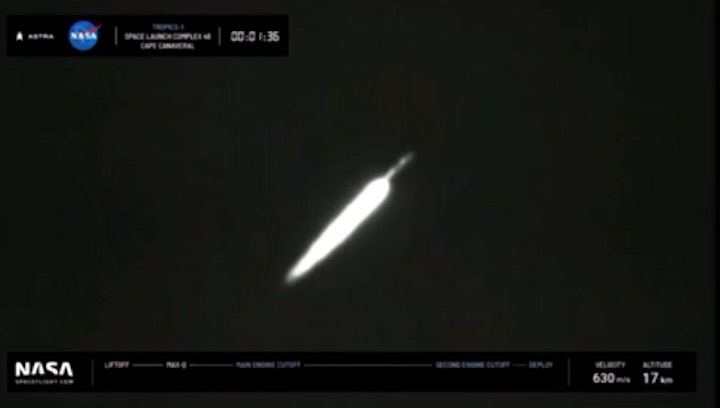
Space industry startup Astra again failed to deliver NASA science payloads to low-Earth orbit after launching a rocket Sunday from Cape Canaveral Space Force Station.
Just over seven minutes after the 1:43 p.m. ET liftoff from Launch Complex 46, a flash below Rocket 3.3's upper stage appeared before its single engine prematurely shut down. Two NASA science payloads designed to study storms, named TROPICS, were attached to the second stage which began to tumble without thrust.
Astra quickly confirmed both small satellites – two of six NASA is hoping to launch for the small weather constellation – were lost.
"We had a nominal first stage flight. The upper stage shut down early and we did not deliver the payloads to orbit," Astra said in a post-launch statement. "We have shared our regrets with NASA and the payload team. More information will be provided after we complete a full data review."
Sunday's attempt marked the second Florida launch for the California-based company focusing on smaller, cheaper options for the space industry. Using off-the-shelf parts, commonly found materials, and shipping containers, Astra says it can launch from anywhere in the world as long as there's a concrete pad and internet connectivity. Its base launch price is just shy of $4 million.
Jonathan McDowell, an astrophysicist at the Harvard-Smithsonian Center for Astrophysics, said the two TROPICS payloads likely fell to Earth shortly after the engine cut out.
"I estimate the vehicle was in a ... 545 kilometer ... orbit at the time of shutdown," he said on Twitter. "Vehicle and payloads will have crashed in the Atlantic a few minutes later."
Astra's first Cape Canaveral mission in February also failed to deliver four NASA and university payloads when the second stage suffered a similar tumble. In both instances, Rocket 3.3's first stage appeared to fly without issue.
"Earth venture missions, like this one, are low-cost opportunities to send NASA science to space," Thomas Zurbuchen, associate administrator of science at NASA, said in a statement. "It also enables more opportunities for researchers to have access to space."
"I am confident that in the future we will succeed in using this valuable launch capability to explore the unknown and give others the same opportunity to inspire the world through discovery," Zurbuchen said.
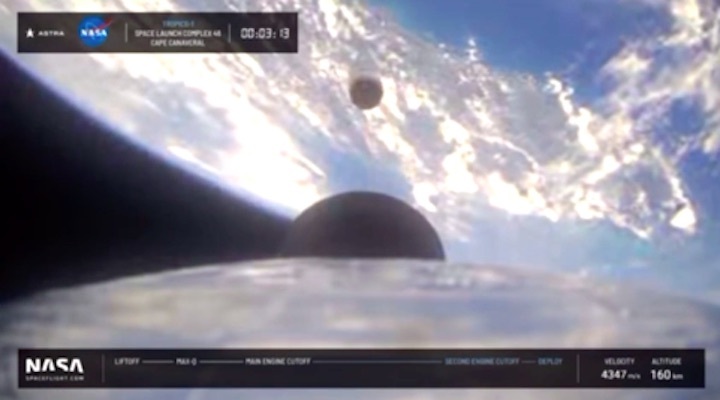
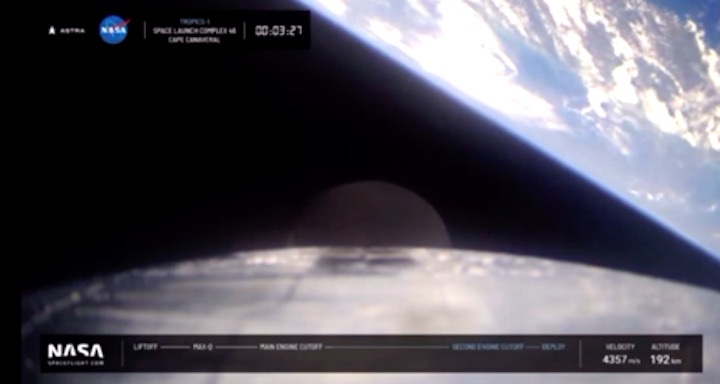
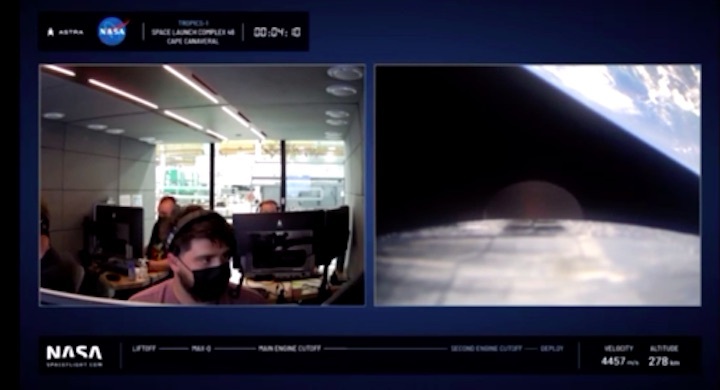
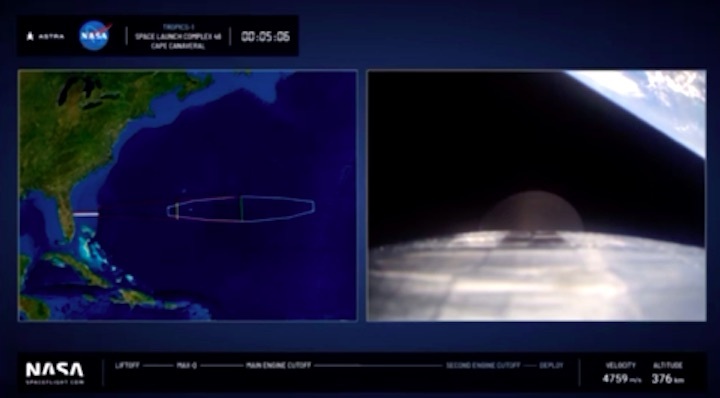
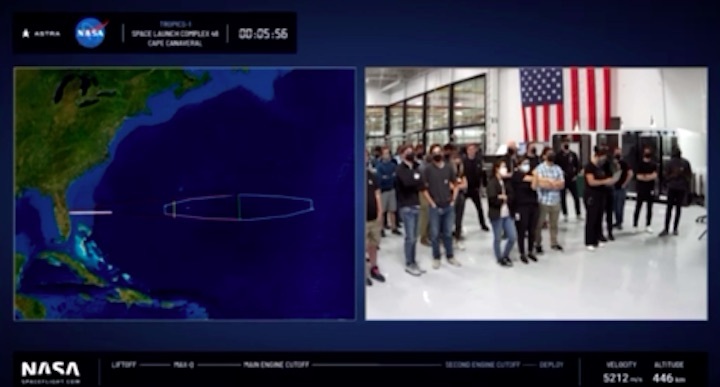
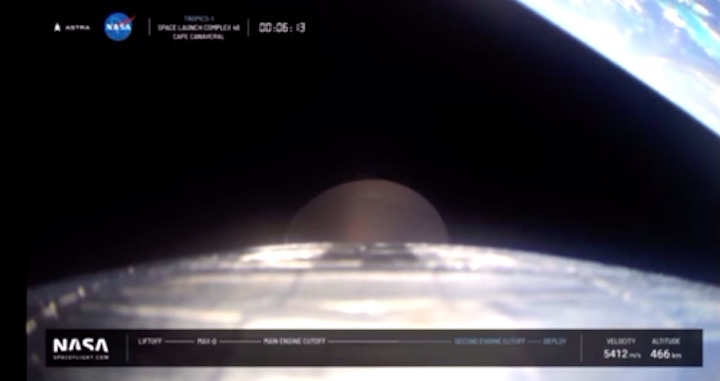
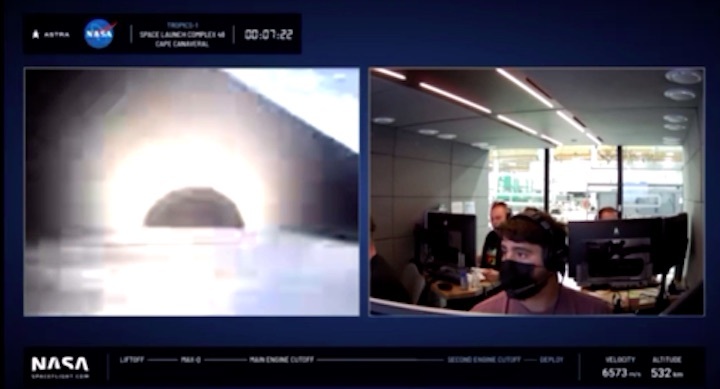
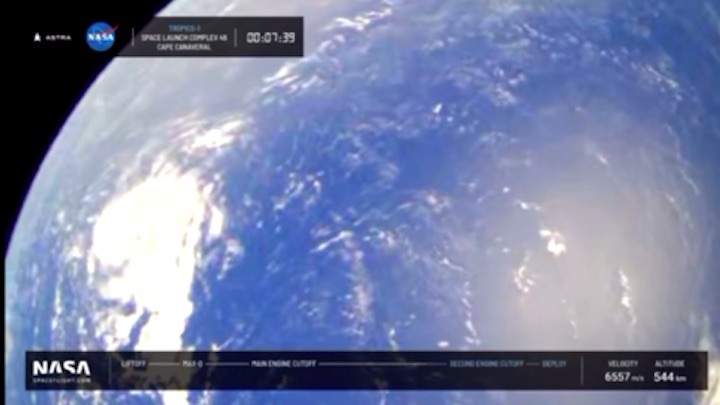
Quelle: NASA, Florida Today
